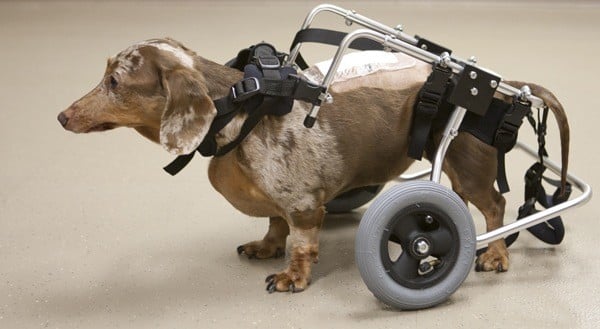Veterinarians and women’s shelters can make it easier for abused women to decide to leave their homes, particularly when the abuser is using a beloved pet as part of a campaign to control his partner, reports a new University of Illinois study.
He made me stand there and . . . watch [him kill my cat]. And he was like: That could happen to you, one woman in the study said.
“These incidences are very symbolic of what the abuser is capable of doing. He’s sending the message: I can do something just as severe to hurt you,” said Jennifer Hardesty, a U of I associate professor of human development and family studies.
For the study, Hardesty interviewed 19 abused women about their decisions on what to do with their pets when they were seeking help from a shelter.
A recent study found that 34 percent of women had delayed leaving out of concern for their pets because their abuser had threatened and harmed the animals in the past, Hardesty noted.
“For abused women, a pet can be a treasured source of unconditional love and comfort—maybe even protection—in a time of transition. Many are strongly bonded to their animals,” she said.
Hardesty stressed that not all abused women are strongly bonded to their pets, and not all abusers target pets as part of their campaign to control their partner.
She does recommend that shelter personnel ask women if they have pets in their home, if they need help placing the pets somewhere, and if something should be done to protect the animals.
At present, only a few shelters welcome pets. In response, the U of I College of Veterinary Medicine is pioneering a program that provides a safe haven for pets until women in shelters can find housing and reclaim their animals.
“It would be ideal if the pet was able to stay with the woman at the shelter, but you’d need a reasonably well socialized and non-aggressive animal for that, and it would require a major shift in facilities and training for shelter personnel,” said Marcella Ridgway, a clinical associate professor in the U of I College of Veterinary Medicine.
According to Ridgway, the U of I program provides up to 30 days of care for pets of women staying at two local shelters. Although many people have a stereotypical idea about pets that have been exposed to violence, the veterinarians typically encounter animals with subtle indicators of a problem, such as having fallen behind on vaccinations or heartworm checks.
“Student volunteers care for the pets and arrange visits between the women and their pets. These students may have some knowledge of interpersonal violence, and they see this as a way to help. Some are able to see the animal come in and then witness the reunion at the end so it’s quite fulfilling for them,” said Cheryl Weber, student services coordinator and grief educator at the college.
Hardesty advised that domestic violence shelter staff:
- Inform women seeking shelter about safe haven programs and other emergency resources for pets, preferably before they arrive at the shelter
- Provide opportunities for women to discuss their pets
- Incorporate pets into active safety planning efforts
- Educate and train staff about sensitive approaches that acknowledge that women have different bonds to their pets
- Collaborate with community partners to develop safe haven programs or other safe options for pets
Ridgway recommended that veterinary professionals:
- Help spread the word about safe haven programs and emergency resources for pets
- Become educated and promote awareness about the links between domestic violence and pet abuse
- Be knowledgeable and nonjudgmental with clients who disclose domestic violence
- Address pet health care issues in an honest and thorough but nonjudgmental manner, using a triaged approach to avoid overwhelming clients
- Assist clients in consideration of rational choices for long-term planning for pets
- Collaborate with community partners to develop safe haven programs or other safe options for pets
- Contribute to broader professional discussions about effective veterinary approaches to domestic violence, including routine screening
“Programs like this one empower abused women. When a woman who has been victimized makes a decision to protect a beloved pet, she’s not a victim, and that’s important,” Hardesty said.


